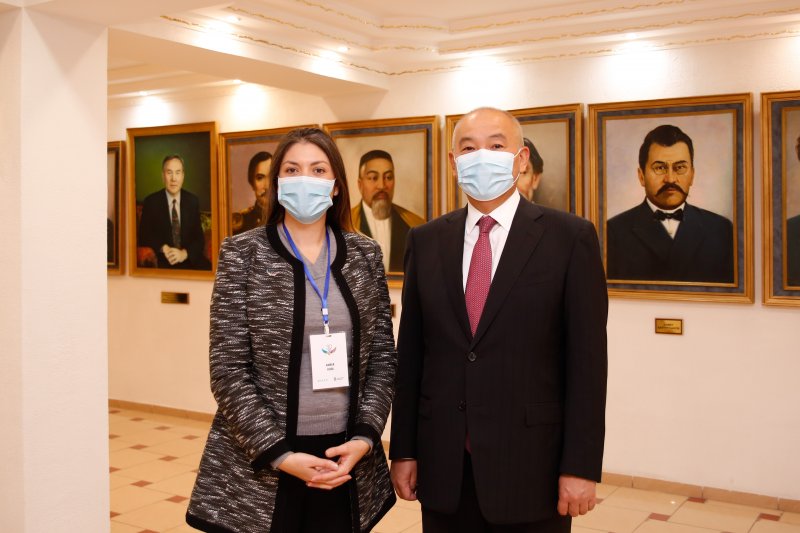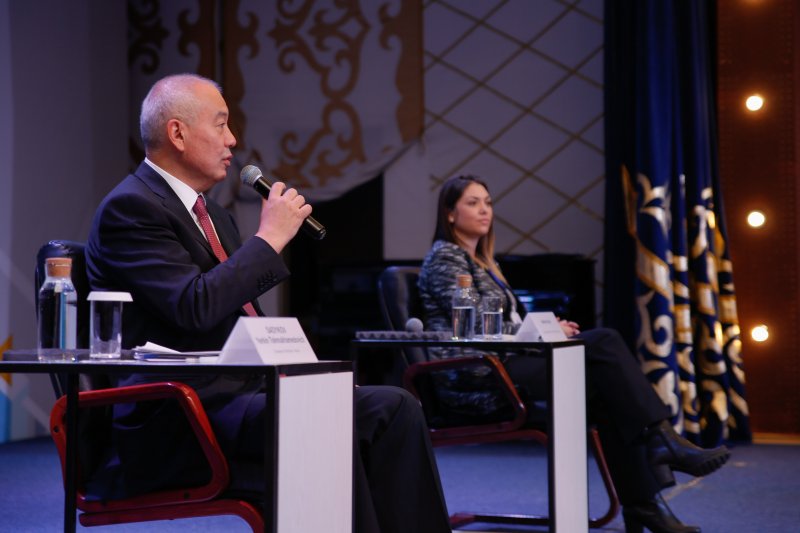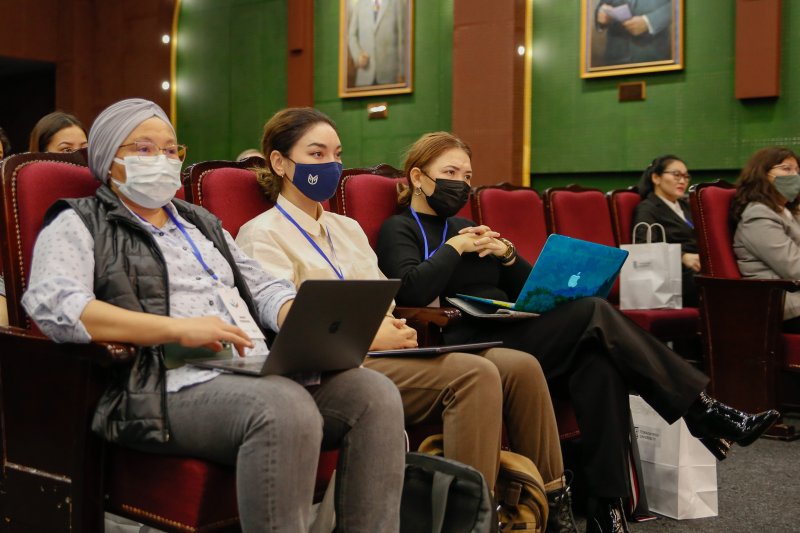A three-day training seminar “Internationalization of higher education: effective partnership between U.S. and Kazakhstan universities” began its work at Toraighyrov University.



Throughout the program, participants will learn a methodology for developing a sustainable integrated culture.
Among the speakers are Amber Aura, Attache for Culture and Education of the U.S. Embassy in Kazakhstan, Banu Narbekova, deputy director of the Department of Higher and Postgraduate Education of the Ministry of Education and Science of the Republic of Kazakhstan.
Rector of Toraighyrov University Yerkin Sadykov noted in his speech that multifaceted cooperation with the United States of America was an important factor in the further development of higher education in the Republic of Kazakhstan.
“Academic exchange programs funded by the U.S. government, as well as state scholarship programs in Kazakhstan, including the” Bolashak “presidential scholarship, have allowed thousands of Kazakhstan people to raise their qualification, undertakr scientific training, and get acquainted with advanced technologies. Exchange programs also act as a tool for establishing mutual understanding between the American and Kazakhstan cultures, contributing to the sustainable development of established partnerships.”
Students and faculty staff of Toraighyrov University regularly participate in international and national competitions for scholarships and grants for educational and scientific programs, such as Fulbright, IVLP, JFDP, UGRAD, as well as the Bolashak presidential scholarship. This year, Toraighyrov University, together with Indiana University, is implementing the UniCEN Central Asian University Partnership program with the support of the U.S. Embassy in Kazakhstan and the American Councils for International Education.
Representatives of the Kazakh-American Free University,Meiram Begentayev, Rector of Satbayev University , as well as Berik Akhmetov,Rector of Yessenov University spoke about the experience of Kazakhstan universities.
In the afternoon, experts from Colorado and Pacific University conducted the “When Cultures Meet” training. It is cognitive, experiential training that helps participants navigate problems and make the most of the opportunities that arise when two or more cultures interact.






